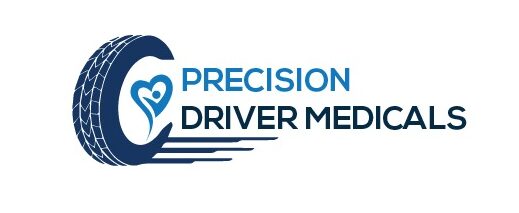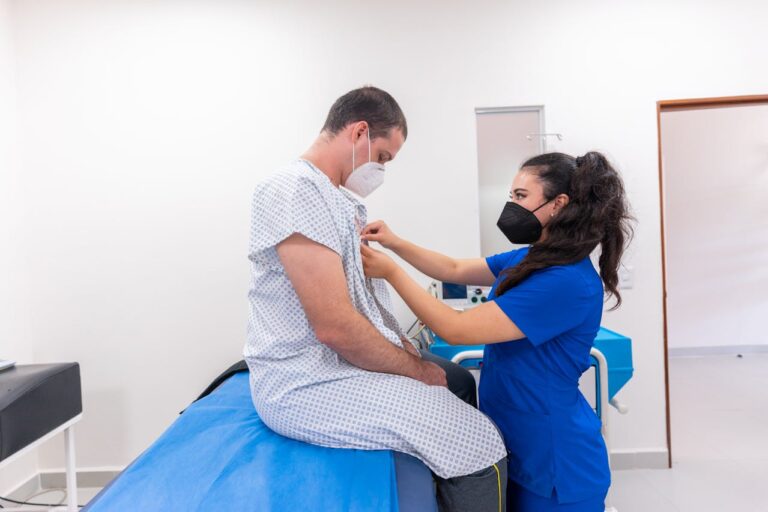Learn everything about epilepsy and driving regulations in the UK. Understand DVLA rules, license requirements, seizure-free periods, and how Precision Driver Medicals can help you stay safe and compliant.
Introduction
Epilepsy affects thousands of drivers across the UK, and understanding the epilepsy and driving regulations set by the DVLA (Driver and Vehicle Licensing Agency) is essential for anyone living with the condition. The ability to drive safely depends on how well epilepsy is controlled, the type of seizures experienced, and how long it has been since the last seizure.
At Precision Driver Medicals, we specialize in driver medical assessments for HGV, PCV, taxi, and private hire drivers—including individuals managing epilepsy. Our GMC-registered doctors ensure all assessments meet DVLA medical standards so that drivers can stay safe, compliant, and confident on the road.
Why Driving Regulations Matter for People with Epilepsy
Driving is a vital part of independence and employment, especially for professional drivers. However, because epilepsy can affect consciousness and reaction time, the DVLA enforces strict medical standards to ensure road safety.
The epilepsy and driving regulations are designed to balance two priorities:
- Protecting public safety
- Supporting individuals with epilepsy to drive when it’s safe to do so
Failure to comply with these regulations can result in penalties, license revocation, or even prosecution in the event of an accident.

How the DVLA Manages Epilepsy and Driving Regulations
When someone is diagnosed with epilepsy, they are legally required to inform the DVLA. This rule applies whether you hold a car, motorcycle, taxi, HGV, or PCV license. The DVLA then reviews medical information—often from your GP or neurologist—to determine whether you meet the fitness-to-drive criteria.
If you don’t inform the DVLA, you may:
- Be fined up to £1,000
- Face prosecution if you’re involved in an accident
- Have your insurance invalidated
That’s why at Precision Driver Medicals, we help professional drivers navigate this process smoothly, ensuring their medical documentation meets all DVLA epilepsy and driving regulations.
Different Types of Seizures and Their Impact on Driving
The DVLA guidelines for epilepsy and driving depend on the type of seizures experienced. Below are the key distinctions:
1. Seizures with Loss of Consciousness
If you experience seizures involving loss of consciousness, you’ll usually need to be seizure-free for at least one year before regaining your driving license for a Group 1 vehicle (car or motorcycle). For Group 2 licenses (HGV/PCV), the seizure-free period is typically 10 years, with or without medication.
2. Seizures Without Loss of Consciousness
In cases where seizures do not affect consciousness or ability to control a vehicle, the DVLA may allow driving after a shorter period, depending on medical evidence.
3. Nocturnal Seizures
Drivers who only experience seizures during sleep (nocturnal epilepsy) may be eligible to hold a license if the pattern has been consistent for at least one year and daytime seizures do not occur.
4. Withdrawal of Medication
If anti-epileptic medication is stopped, drivers must stop driving and notify the DVLA immediately. Driving may resume only after a period of stability or medical reassessment.

Epilepsy and HGV or PCV Driving Licenses
For professional drivers holding Group 2 licenses (HGV or PCV), the epilepsy and driving regulations are significantly stricter.
The DVLA requires:
- No seizures or epilepsy diagnosis for at least 10 years
- No medication for seizure control during that period
- Regular medical evaluations by a GMC-registered doctor
At Precision Driver Medicals, we provide HGV and PCV medical assessments that fully align with these DVLA standards. Our specialists will help ensure that every aspect of your medical fitness is accurately documented—giving you the best possible chance to meet the licensing requirements.
How to Notify the DVLA About Epilepsy
You must tell the DVLA immediately if:
- You are diagnosed with epilepsy.
- You experience your first seizure.
- Your seizures become more frequent or change in nature.
- You stop or start epilepsy medication.
Notification can be made online or via a form FEP1 (for Group 1 drivers) or form FEP1V (for Group 2 drivers).
The DVLA will then request a medical report from your doctor or specialist.
At Precision Driver Medicals, we can assist you with preparing medical evidence to support your DVLA application or renewal. Our doctors understand exactly what information the DVLA requires—saving you time and ensuring compliance with epilepsy and driving regulations.
What Happens During a Driver Medical for Epilepsy
When you book a driver medical with Precision Driver Medicals, your examination is handled by GMC-registered professionals who specialize in driver fitness assessments.
A typical epilepsy medical evaluation includes:
- Reviewing your seizure history and medication
- Checking blood pressure and vision
- Confirming seizure-free intervals
- Completing any required DVLA D4 or FEP forms
- Discussing any changes in medication or recent symptoms
The process is efficient—usually lasting 15 minutes—and designed to help you meet DVLA epilepsy and driving regulations while ensuring your safety on the road.

When You Can Reapply for Your Driving Licence
Once you’ve been seizure-free for the required period, you can reapply to the DVLA.
The typical requirements are:
| Licence Type | Minimum Seizure-Free Period | Additional Notes |
|---|---|---|
| Group 1 (Car/Motorcycle) | 1 year | May be shorter in special cases (e.g. isolated seizure) |
| Group 2 (HGV/PCV) | 10 years | No medication for epilepsy during that period |
If your condition remains well controlled, and you meet the medical standards, your license can usually be reinstated.
How Precision Driver Medicals Can Help
At Precision Driver Medicals, we make the process of staying compliant with epilepsy and driving regulations as simple and stress-free as possible.
Our services include:
- DVLA-compliant medical assessments for Group 1 and Group 2 licenses
- Taxi, HGV, and PCV driver medicals across multiple UK locations
- Quick appointments and same-day results
- Affordable pricing with no hidden fees
- GMC-registered doctors familiar with DVLA neurological standards
We understand how important your license is for your career and independence. That’s why we ensure every report is detailed, accurate, and submitted in full compliance with DVLA epilepsy and driving guidelines.
Stay Safe, Stay Compliant, Stay on the Road
Epilepsy does not have to mean the end of your driving career. With proper medical management, clear documentation, and adherence to epilepsy and driving regulations, many drivers can return to the road safely and legally.
At Precision Driver Medicals, we’re committed to helping professional and private drivers navigate these regulations with confidence. Whether you need a DVLA medical assessment, renewal documentation, or expert advice on your eligibility, our team is here to guide you every step of the way.
Book Your Epilepsy Driver Medical Today
Get your medical assessment with Precision Driver Medicals and ensure you meet all DVLA epilepsy and driving regulations.
We offer fast, affordable, and professional driver medicals across the UK—including for HGV, PCV, and taxi drivers.
Top Services
- Driver Medical
- HGV/Lorry Drivers (HGV medical)
- Taxi Drivers (Hackney Carriage & Private Hire Medical)
- Private Hire
- PCV/Bus Drivers (PCV medical)
- PCO Medical
- Bus Medical Service
- Motorhome Medical
- Ambulance Medical
- Forklift Driver Medical
- TFL Medical
Top Links
10 Important Links for Driver Medicals UK
- DVLA – D4 Medical Examination Report
→ Official D4 form for HGV/PCV drivers. - DVLA – Driving Licences for Lorry, Bus and Coach Drivers
→ Requirements for becoming a lorry or bus driver. - TfL – Private Hire and Taxi Driver Medical Requirements
→ TfL’s official medical guidelines for PCO/private hire drivers. - DVLA – Eyesight Rules for Drivers
→ Legal eyesight standards for all UK drivers. - DVLA – Medical Conditions and Driving
→ Guidance on how medical conditions affect driving eligibility. - NHS – Medical Exams for Professional Drivers
→ NHS overview of driver medical exams. - Driver & Vehicle Standards Agency (DVSA)
→ Regulator for driving and vehicle safety standards in the UK. - General Medical Council (GMC)
→ Authority for registered medical professionals in the UK. - Gov.uk – Renew Driving Licence
→ Process for renewing a UK driving licence. - National Register of LGV Instructors (NRI)
→ Training and standards for LGV/HGV instructors.


